Middle Platonism: Greek Philosophic Adolescence
Despite the emergence of metaphysics as we know it today in classical Greece, seen most clearly in the (interpretation of) the dialogues of Plato and then more clearly elucidated in the work of Aristotle, a product of Plato’s Academy, and the beginnings of the clear articulation of the role of Mind, and Reason, in not only distinguishing mankind from the rest of the species on the planet but also as the distinctive faculty of the human condition which can and should be leveraged for enlightenment, and on a more practical level happiness (eudaimonia), the rational aspect of the mind of man was looked at by the ancients as just one aspect of the Soul, the Soul in antiquity being the entity, the form, which encapsulates (ensouls) the human body and connects the individual to the cosmos as well as encompasses all of the faculties and functions of what we today call psychology or more recently cognitive science. To the ancients, the act of perception and cognition, although identified with the mind, was the means by which man could lift himself up from the basic human condition and achieve peace and harmony.
With the Ancient Greeks, we see the establishment of philosophy from which derived what we would call today religion, philosophy as the study of wisdom in all its aspects, including not only the wisdom of the mystery traditions, but also the tradition of the mythic poets (Homer and Hesiod), all of which were stewarded and guarded by priests and the oracle based tradition – not only in Greece, but also in Egypt, Judea (Chaldean Oracles), and even Persia (the Magi). Philosophy by definition was the attempt at establishing cohesive and complete metaphysical systems which were based upon Reason (Logos); Reason in this context being juxtaposed and complementary with direct revelation of the divine, a tradition which had been prevalent in the ages prior to written history across the Middle East, Egypt, throughout the Mediterranean and even to the East in Persia and India. The Greeks, in many cases in threat of death and martyrdom, were the first to stop and say that that we should not believe these mystery and cult traditions at face value but that in understanding the role of Mind in the cosmos, the vehicle by which life itself manifested, Truth and order (maat to the Egyptians and again logos to the Greeks) when properly understood and harmonized with, could help man to understand how best to live in this world, in harmony, and even how best to govern and manage society as a whole.
The philosophical systems of Plato, Aristotle, the Stoics, the Epicureans, and others included not only a cosmological system which presented alternative theories (or some might argue a recasting or reinterpretation of preexisting cosmologies) for the basic substrata of the universe (archai) as well as to how the foundational principles of the universe were created (the four elements), along with the basic building blocks of the physical world (physics) which described the world of change within which mankind coexisted, and in turn ethics which was based upon the goal of happiness or peace of mind which could be achieved through knowledge and wisdom of the cosmos, how it related to the physical world, and understanding how man could live in harmony and balance with it. Philosophy in antiquity incorporated the ancient traditions of direct revelation and attempted to explain the role of the gods, through various cosmological mythologies, to the population at large through systems of ethics that were taught in the various philosophic schools. In all these schools however, the supremacy of the mind, seen as a reflection of the divine Mind which emanated through and was the source of the cosmos, was preeminent. The specific attributes and features of the mind itself, the role of cognition and perception, did not come to the forefront of philosophical development until the Enlightenment era however, some two thousand years later – most notably found in the work of Descartes encapsulated in his phrase “cogito ergo sum” – by which time the true meaning and import of the philosophies of antiquity had for the most part been lost in their transliteration and absorption into Christianity and to a lesser extent Islam.
Two of the most influential Greek philosophical traditions in antiquity, in both the Hellenistic period as well as the period of Roman influence and domination, were Stoicism and Epicureanism, the former of which exerted considerable influence on early Christian theology, which in turn was influenced by Jewish theological development during the same time, most notably seen in the work of Philo of Alexandria. The Stoic and Epicurean philosophical systems survive down to us in fragments and pieces for the most part, in contrast to the more complete philosophical systems and works that survive down to us from the Platonic and Peripatetic (Aristotle) schools. For example the (Middle) Platonic philosopher and historian Plutarch from the 2nd century CE, who incidentally was also a priest at Delphi, wrote a quite few works that criticize Stoicism from which we gain important insights into its underlying philosophy. We also find material related to Stoicism and Epicureanism in the works of the philosophical biographer Diogenes Laertius from the third century CE who was the author of Lives of Eminent Philosophers, a comprehensive treatise which included extensive autobiographical as well as philosophical summaries of virtually all of the major ancient Greek philosophers and schools – Stoic, Platonic and Epicurean being three schools which he covers in great detail.
One cannot ignore the underlying socio-political context which drove these philosophical, really scientific, developments. With the advent of first the Persian Empire and then the Macedonian Empire in the middle and latter half of the first millennium BCE, we see the lines of communication, exchange and trade routes open up which bridged the ancient populations of the Macedonians, the Romans, the Greeks, the Egyptians, the Chaldeans (Palestine and Israel region today) and of course the Persians[1]. The cultural and philosophical epicenters of these developments were, as they are today, forged in urban centers of learning, most notably of course first in Athens, then in Alexandria in northern Egypt, and then in turn in Rome as the Roman and Latin culture began to dominate the intellectual landscape in the first few centuries CE.
Alexandria in particular saw the development of profound intellectual and philosophical development, where most if not all of the most influential ancient philosophers and theologians lived and studied to a large extent between the second century BCE and the second century CE. This was of course the home of the great Library of Alexandria, perhaps the greatest legacy of Alexander, and the place where the Hebrew Old Testament was translated into Greek, the famed Septuagint (or simply LXX), and where early Christian theology first took shape as reflected in the works the esteemed Jewish philosopher Philo of Alexandria (also known as Philo Judea) who lived and wrote around the time of Christ, Clement of Alexandria who wrote and taught in the 2nd and third centuries CE, and Origen also of Alexandria who is believed to have studied with and was greatly influenced by Clement. Clement and Origin were some of the first Christian theologians to interpret the Gospels in light of the Greek philosophical tradition, building on the work of Philo who had analyzed and encapsulated Old Testament wisdom in the light of Hellenic philosophy.
This period represented a melting pot of theological dialogue and development, perhaps best described as the enlightenment era of philosophy in antiquity and it is no accident that it is from this period that perhaps the greatest religious figure in the history of mankind emerges, Jesus of Nazareth. It was a time when all of the significant religious traditions (philosophy) of the Mediterranean, Near East and Egypt were assimilated by some of the best minds in antiquity, an assimilation that occurred at the same time as advanced civilization was starting to blossom, and language and writing – and the existence of extensive libraries – began to manifest in the ancient world, giving philosophers and historians alike access to broad expanses of knowledge across an extensive cultural landscape, granting a perspective on history and theology, and science which at that time encompassed theology, that was unmatched in all of mankind’s history up to that point. Perhaps it’s not too much of an exaggeration to say that it was a time when Reason began to take prominence over ritual and myth as the predominant determining factor that shaped religious thought, where all knowledge was looked upon as a single system and body of work that must hang together cohesively, and where ethics was considered a branch of science just as important as physics. This is the legacy of the ancient Greeks to the West.
The philosophers of this era looked upon the mythology of the ancient peoples, their cosmologies that were wrapped in fable and epic poetry, as allegories for the ascent of the Soul, not as true stories that explained the inner workings of Nature as some modern historians would have us believe. This was the “secret” that was kept by the priests of the major sects of the ancient world, with whom the philosophers studied, and what they attempted to encapsulate and describe in whatever form they deemed most appropriate. Plato wrote in Socratic dialogue form, hiding more abstract and esoteric teachings to a large extent perhaps because he was concerned the same fate of Socrates might befall him or perhaps because he thought that the ancient wisdom he was trying to convey was most appropriately done wrapped in allegory and dialectic so that the wisdom and elegance of the teaching, which he believed was beyond words, could be conveyed as best as possible. Aristotle was more direct in his approach, more scientific to the modern reader, and perhaps because of this not terribly popular to the everyday man in antiquity that still had an appreciation for myth and allegory – at least certainly not as popular as the Stoic and Epicurean schools which had significant followings in the aristocracy and the middle class of antiquity respectively[2].
What must be kept in mind when reading about the ancient Greek philosophical schools and their respective influence not only on the development of Christianity, but also on ancient interpretations of the Old Testament (which were of course incorporated to a large extent by Christianity) as well as Muslim philosophy, is that perhaps their most lasting contribution was not the philosophy itself, but the academic and intellectual bent that all of these schools shared which was handed down through the West all the way through the Middle Ages and survives to a large extent in the academic tradition that is a hallmark of Western education today. It is no accident that our word academic derives from the name of Plato’s school in Athens – not to mention the influence Aristotle’s work has had on modern science at the very least from a semantic perspective in delineating the branches of science as well as the meaning of “science” itself, stemming from Aristotle’s epistemological focus even though this connotation has been all but lost on the modern student.
Although it is easy to get lost in the subtle distinctions between the most predominant ancient Greek philosophical schools, it is important to keep in mind that as Christianity begins to take root in the West in the second and third centuries CE, Hellenistic philosophy – at least through the eyes of outsiders – was looked at as a single branch or thread of thought and studied as a whole. In other words, the scholars and students in Roman antiquity studied all of the Greek philosophic schools, and then went about applying their analysis and interpretation of philosophy in general (which again included ethics, physics and politics among other disciplines in antiquity) through whatever lens or school that they belonged to. As the ancient Mediterranean became under predominantly Roman influence in the first few centuries CE, the philosophical record starts to become much more Christian than Hellenic as the teachings of Christ start to spread and Christianity takes root in the Roman Empire. [The one notable exception to this is the Neo-Platonic developments in the third, fourth and fifth centuries by first Plotinus and Porphyry, and then Proclus some two centuries later, their work having significant influence on the development of early Christian theological development as well and perhaps at some level representing the pinnacle of Greek philosophy in and of itself.]
Having pointed out the similarities of the Greek philosophical schools and looking at philosophical development in general in this era as the evolution of philosophy proper into what we today refer to as “religion”, or perhaps more accurately described as “theology”, it is important to point out that there were of course distinctions in worldview, outlook and metaphysics in these competing schools, and these differences were the source of much consternation and academic concern in this period of flourishing theological and philosophical development, a period which effectively came to an end with the beginning of the long standing and well documented history of the persecution of “pagan” traditions/religions by Christian orthodoxy. Many of the Greek philosophical schools, as well as some of the more esoteric teachings and interpretations surrounding the life of Christ – collectively referred to as Gnosticism – were the first to feel this wrath as Christian orthodoxy emerges toward the end of the fourth century CE.
As we look at Hellenic philosophical development during the last few centuries before Christianity takes root, despite the prevalence of competing philosophic traditions, Plato’s teachings as interpreted by his successors at the Academy not only influences succeeding Hellenistic philosophic schools but also continues to thrive in its own right. Plato’s teachings and influence, although perhaps not quite as predominantly taught or practiced by its sister Hellenic philosophies which had become widespread and popular as previously noted, was still alive and well and still formed a core part of the philosophical education of the intellectual elite during this time, many of whom went on in the in the 2nd and 3rd centuries CE to become the first Christian apologists and theologians.
Plato again espoused the supremacy of the intelligible world over the reality of the physical world, as reflected in his powerful Allegory of the Cave (which incidentally shows signs of significant Pythagorean influence given its use of the Sun and Light as the metaphor for knowledge) and espoused a certain level of skepticism or cynicism toward the physical world, the world f change or Becoming that was perceived by the senses, leading to an orthodox interpretation of his teachings by his successors at the Academy on the limits of human knowledge itself, hence its association with skepticism. This theme can be seen not only in his teachings themselves and their subsequent interpretation by his followers, but also in the method which he wrote and taught – i.e. Socratic dialogue, dialectic, which implied a sort of organic or exploratory nature of reality and truth rather than the exposition or elucidation of truth in hard and fast terms. This skeptic tradition was a characteristic of the teachings of the Academy until Antiochus of Ascalon (c. 130-68 BCE) takes the scene in the first century BCE, heralding a new period in the development of Platonism[3].
Antiochus’s work marks not only a significant departure from, and an effective end to, the tradition of skepticism which had been a hallmark of the Academy for several centuries prior, but it also showed clear influences of Stoic philosophy, epistemology in particular, Stoicism having become very influential in the Hellenic intellectual community in Antiochus’s time. With Antiochus we have the beginning of what later philosophic historians have termed Middle Platonism, “middle” because it sits between the period of skepticism which is characteristic of the teachings of the Academy after Plato’s passing and the development of Neo-Platonism as reflected in the works of Plotinus, Porphyry and Proclus among others which takes shape in the third century CE, roughly running parallel with early Christianity.
In Antiochus’s view, no doubt influenced by the well documented and ongoing debate between the Skeptic Academics and Stoic and Epicurean realist/materialist philosophic schools, was that in the analysis of Plato’s writings taking into account his so-called “unwritten doctrines” (which we can only assume continued to be passed down through the teachers at the Academy) the mind could in fact distinguish between truth and falsehood, bridging the epistemological divide between the Stoics and Academics to a large extent and setting the stage for further Platonic development for the next few centuries borrowing some ideas from its Hellenic philosophic brethren. To Antiochus, Plato’s philosophy was in many respects in harmony with not only Stoicism – truth could in fact be discerned from falsehood – but also those of Aristotle to a large extent as well, thereby establishing a new phase of Platonic philosophical development which espoused an epistemological view that was more closely aligned with Stoicism and the Peripatetic schools than his Academic predecessors, as well as a system of ethics which combined classically Platonic elements with some elements of the Stoic and Peripatetic schools as well, reflecting the overall philosophic synthesis that was characteristic of this time period in antiquity.
In the interpretation of Plato’s cosmology during the Middle Platonic period for example, we see the two basic principles of the universe referred to as the One and the Indefinite Dyad (the Monad and the Dyad in the Pythagorean tradition), the former being the single monistic and unchanging principle from which the universe emanates latter being the pluralistic world which is brought into being by the intelligent aspect of the World Soul. This corresponds to Plato’s doctrine of Being and Becoming in the Timaeus which lays out the basic principles of the universe (archai or ἀρχή which stems from the Greek verb “to begin”), the ordering and intelligent which combines the primary elements (earth, air, water, fire) from which the universe is constructed by the great universal craftsman. The World Soul according to Plato, the demiurge of the Timaeus, mediates between the realm of Ideas and the realm of matter as characterized by the world of sense perception or that which is subject to change – what he refers to as “Becoming” vs. the principle of Same, or Being. Plato’s Being and Becoming are the two primary aspects of Nature which are analogous to the One and the Indefinite Dyad in the Middle Platonic period. And also out of this doctrine comes forth a notion of that which must mediate between the two archai, an intelligent organizing principle which is referred to as Intellect in the later Neo-Platonic tradition and is referred to as Logos in the Stoic school and in subsequent interpretations of first Judaic scripture (the Pentateuch) and then Christian theology as evidenced not only in the Gospels themselves, particularly John, but also in interpretations of the Gospel by early Christian apologists such as Clement and Origin of Alexandria.
In this cosmology we see many of the same characteristics and themes of not only the mystery/mystical traditions that were prevalent throughout Greece at this time, but also similarities to the cosmological systems of the Jews (which Plato may or may have not been exposed to) and most certainly those of the Egyptians[4]. This universal triad which emerges from Middle Platonic thought – the One, the Indefinite Dyad, and an active intellectual ordering principle responsible for the creation of the cosmos of which man reflected – was to have a profound impact not only Neo-Platonic thought, but also on philosophical and theological development in general for the next six hundred years or so, Christianity being no exception of course.
The Stoic cosmology was not that distinct from this Middle Platonic worldview, differing primarily in some aspects of the conception of Plato’s World Soul and how active and integrated it was within the universe which was its byproduct as well as the fundamental nature of the physical world and its constituents, focusing on fire and air being the active ingredients from which the primary governing element of the universe, the pneuma, originated. Of course the Stoic focus on the primacy of the physical world over the mental and immaterial world of Ideas as Plato put forth was the source of its distinguishing psychological views which focused on the proper functioning of the individual mind via the discriminative faculty (hêgemonikon) rather than the meditation on the abstract principles in the realm of Ideas.
[1] Although Alexander the Great did get as far as India in his travels, and there are references in many of the ancient Greek philosophical works of the Indian gymnosophists (literally “naked sages”), the influence of the Indian philosophical systems on the West was minimal and marks from a cultural as well as intellectual development perspective the line between the East and West that is most commonly drawn today.
[2] Seneca a first century CE Roman statesman and the Roman Emperor Marcus Aurelius from the second century CE are both notable followers of the Stoic system. Virgil the famed author of the epic poem about the founding of Rome entitled the Aeneid from the first century BCE, the poet and philosopher of the of the first century BCE Lucretius, and Diogenes Laertius the historian and autobiographer of the third century CE are all associated with the Epicurean school, the latter two authors being the source of much of our information about ancient Epicureanism.
[3] It is believed that Antiochus was one of the teachers of Cicero.
[4] Plutarch writing at the turn of the first century CE in fact authored a piece, On Isis and Osiris, citing the similarities and basic consistency of Platonic cosmology to not only Egyptian mythology (in particular the myth of Isis, Osiris and Horus) but also may of the other pre-Socratic Greek cosmologies as well as Chaldean and Persian (Zoroastrian) cosmological traditions.

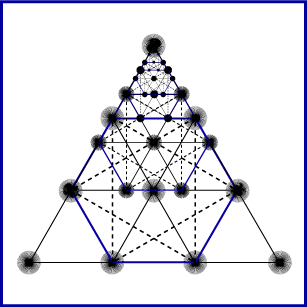

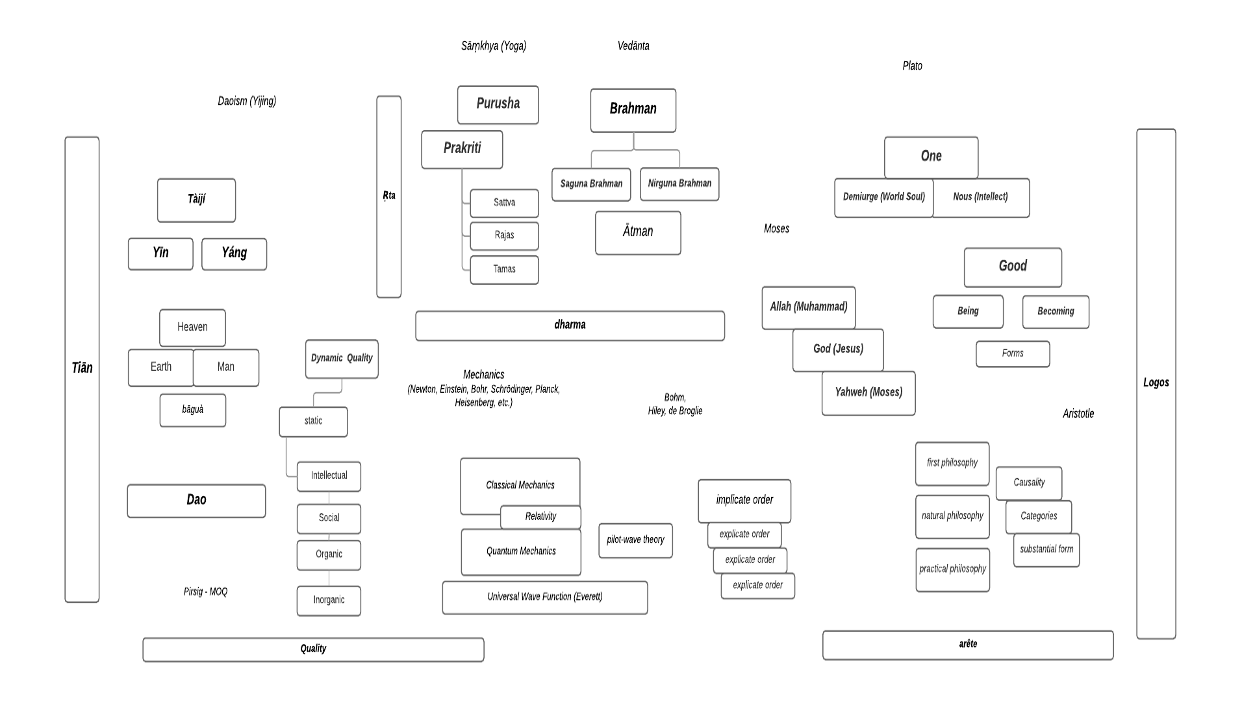
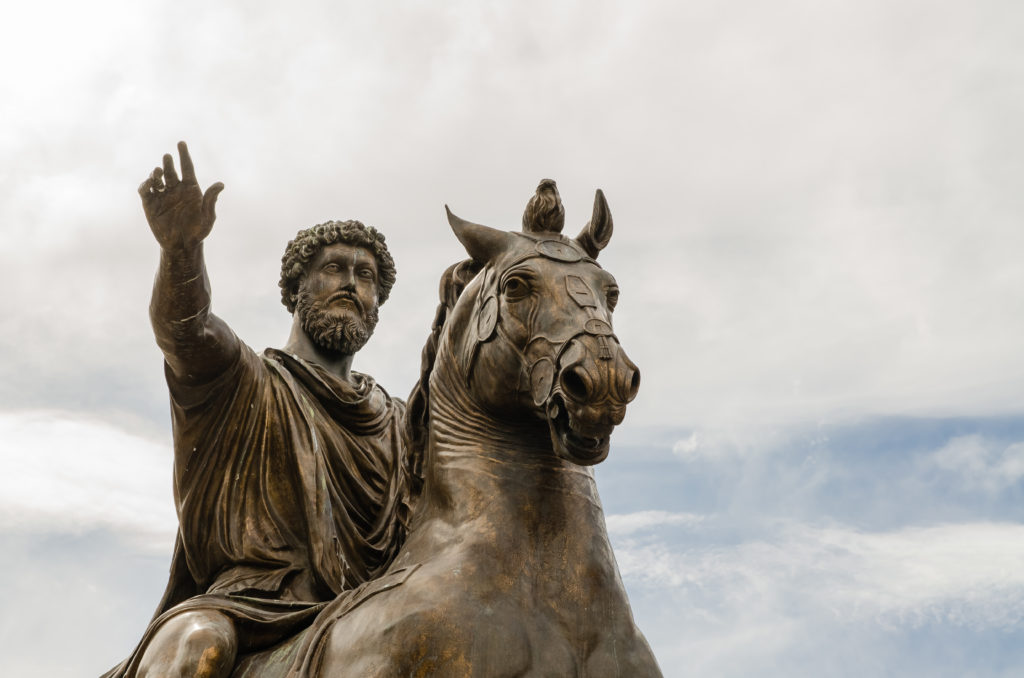
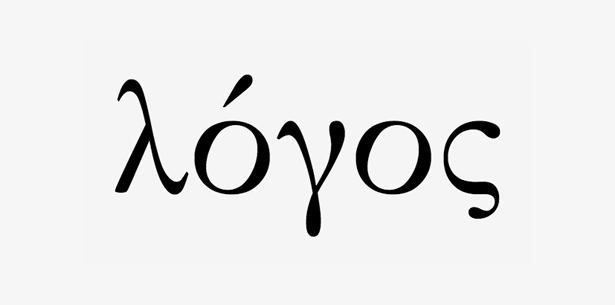
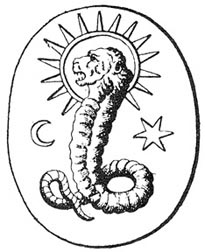


Leave a Reply
Want to join the discussion?Feel free to contribute!